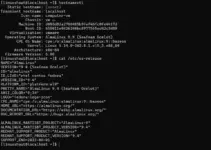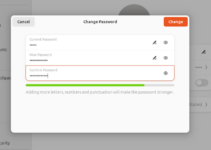Linux is an open-source software platform developed initially for home computers but later become a dominant Server operating system. Linux Server OS are popular because of their small size and ability to quickly convert to perform some specific operations such as Web server, File server, monitoring tool, etc. That’s why you will see almost all computing cloud platforms prefer Linux servers to distribute their computing services.
Apart from powring thousands of racks at hosting companies, in server farms, and at cloud providers, you can also see Linux command line servers nested in container instances or virtual machines, in short Linux keeps the Internet alive. As a server, Linux today supports more architectures and processors than any other kernel – from very large to very small.
Top Linux Server distributions to use in 2023
1. AlmaLinux or Rocky Linux

Both Linux came into existence after Redhat had pulled out the Long term support in CentOS, leaving no options for developers to come up with new options. Both Alamlinux and Rocky Linux are 1:1 RedHat binary compatible and can be used to host enterprise server applications.
Links: Almalinux | Rocky Linux
2. Oracle Linux
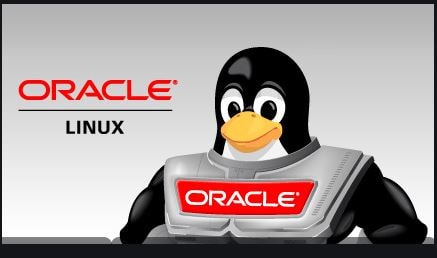
As we know CentOS 7 is the last distro from its community for Server users that will support for the long term (E.O.L is 30 June 2024), thus in this case either we can go for the well-established Oracle Linux which is also based on Red Hat.
Oracle Linux provides regular updates and strong security features such as Unbreakable Kernel. It is available for Docker and in the GUI format as well. OL also uses the YUM package manager and all other features that one would have on CentOS Linux. On the other hand, CentOS 8 is not going to support the Long term instead remains available as a rolling release version that will get continuous updates, thus it will be good for Desktop users because Server administrators don’t want lossy updates that are not well tested. See How to install XFCE GUI on Oracle Linux 8 or 7 CLI Server?
2. Ubuntu Server
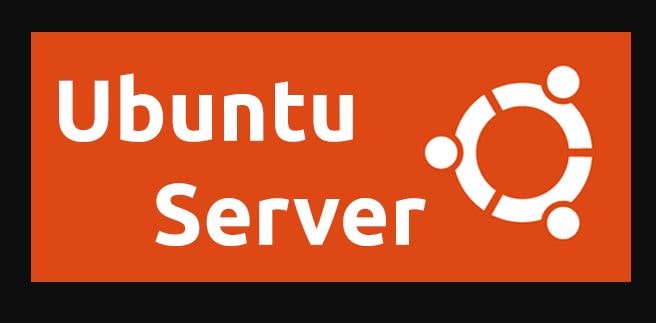
Ubuntu server Linux doesn’t need an introduction, if you already have used the Linux operating system then you would be well aware of it. It is one of the most reliable servers for Linux operating systems to use for commercial applications. Unlike CentOS and RHEL, Ubuntu offers a wide range of applications directly from its repository. Also, using the APT package manager, it is very easy to manage application installation and settings.
Furthermore, Ubuntu is the right choice as a server system when current technologies such as LXD containers, web servers with HTTP-2 support, and frameworks such as Node.js are required. There are various bootable media for installation: a live system, a new text-based installer, and installation media with a network-based text installer that downloads all the desired packages during setup. We can easily find Ubuntu on almost all cloud computing and hosting providing services… See: How to install Linux Kernel 5.10 on Ubuntu 20.04.
3. Debian Linux
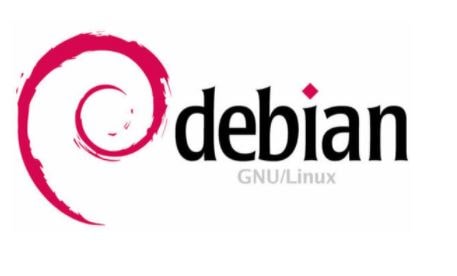
Debian is one of the mature server operating systems that are continuously not only part of many server machines but also provides a base for other famous Linux operating systems such as MX Linux, Ubuntu, Deepin, and many more…
It is a living fossil among Linux distributions that is not only open source but also provides long-term support to its editions. For example, the latest LTS one is Debian 10 Buster which offers support till 2024. A Debian edition is provided with updates for around five years.
Furthermore, the distribution consists exclusively of system tools from the GNU project. The distribution repository is huge and has more than 59,000 software packages currently available in the precompiled form.
One of the most important features is the Apt package manager, which made it comparatively easy to install and update software packages. It can also be downloaded in Live format, Cloud image, or minimal network bootable form.
4. SUSE Linux Enterprise Server

SUSE Linux Enterprise Server (SLES) is a 20-year-old open-source project designed specifically for servers, mainframes, and workstations. It offers stable release after 3 or 4 years just like CentOS to give enough time to enterprises; so that they get ready to embrace new technologies. While between this interval of a major release, the company keeps releasing service packs about every 12 months to patch bugs and provide security updates. SUSE Linux Enterprise Server packages receive more intense testing than the upstream openSUSE community product, which means more stability of the included components to handle enterprise applications.
5. Fedora Server

Fedora is another Server Linux distro in the list that offers a short lifecycle and is available in 64-bit installation images as well as for cloud environments such as Vagrant, OpenStan, Amazon Cloud, and more. Backed by RedHat, the Fedora community always trying to innovate and support a wide range of hardware. Its repository offers support to a wide range of packages out of the box.
With the help of FreeIPA in Fedora, it allows managing Linux users and client hosts from one central location with CLI allow performing advanced identity management, DNS, certificate services, and Windows domain integration throughout your environment with, the open-source domain controller.
6. OpenSUSE Leap

Another Linux distribution of Suse in the open source category for enterprise is OpenSUSE. It is available in two editions one is Leap, for those who want less updated and quite stable Linux that receives one release each year and in between security and bugfixes, whereas the other one is a rolling update called OpenSUSE Tumbleweed.
It offers a Yast configuration system, which is far removed from traditional Linux administration but offers graphical menus in the style of Windows Server whereas Zypper is the default command line package management tool for openSUSE.
Few other options…
7. Zentyal Server
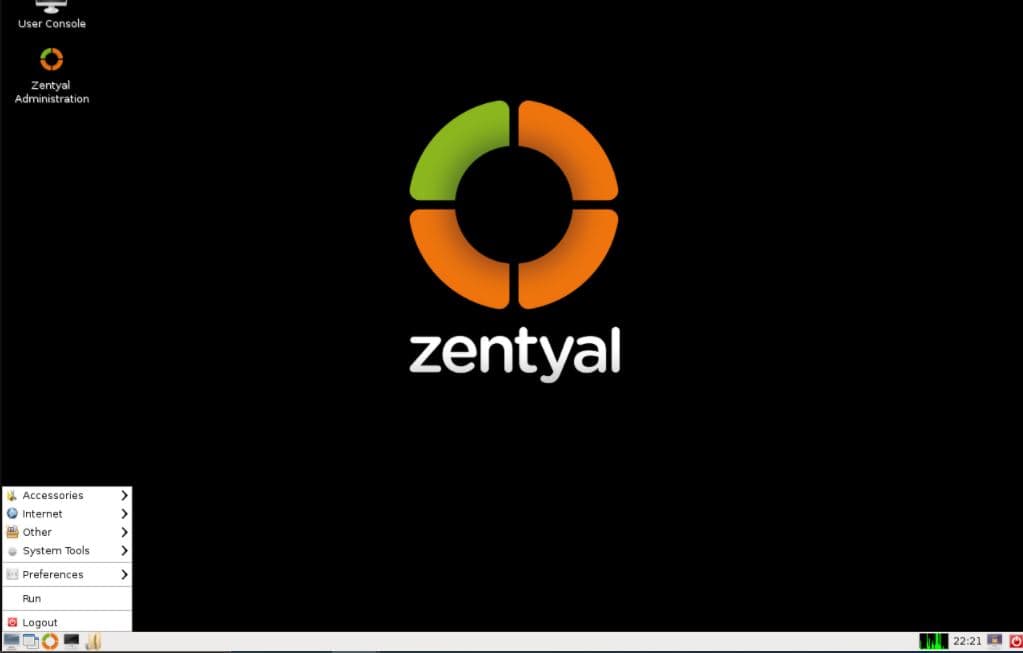
Zentyal Server is not like the other best Linux server distros mentioned in this list. Instead, it is a unified network server that offers multiple features in a single package as it can be used as a gateway, an infrastructure manager, a unified threat manager, an office server, a unified communication server, or a combination of them.
It is also an open-source project and was developed to save the time of small and medium enterprises by offering multiple servers features tightly integrated into the distro that is based on Ubuntu. In terms of the graphical user interface, it comes with LXDE and WebUI.
8. Univention Corporate Server
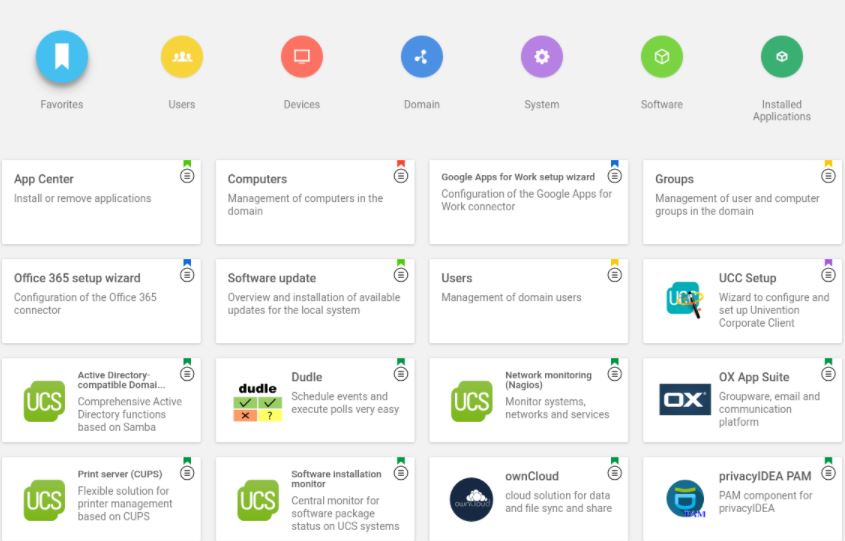
Univention Corporate Server is an enterprise-class distribution based on Debian GNU/Linux. It features an integrated management system for the central administration of servers, Microsoft Active Directory-compatible domain services, and functions for the parallel operation of virtualized server and desktop operating systems.
